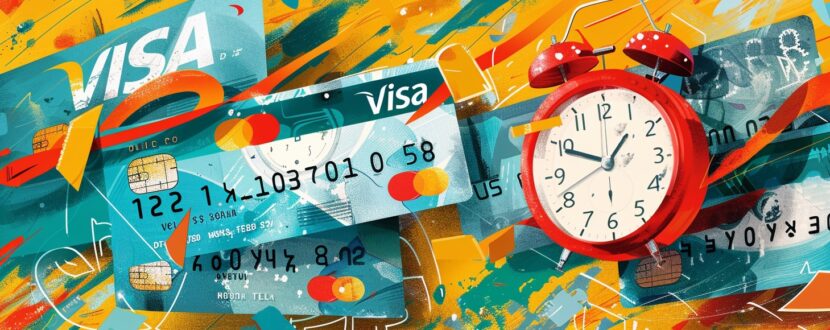Visa chargeback reason codes are a set of codes used by Visa to classify various reasons for chargebacks, which are disputes filed by cardholders against merchants. These reason codes help in categorizing the dispute and determining the appropriate course of action.
Each chargeback is associated with a unique 2-to-4-digit alphanumeric reason code issued by the cardholder’s bank, detailing the basis for the dispute. Major card networks such as Visa and Mastercard use their own specific sets of reason codes. These codes are crucial for merchants as they help pinpoint persistent issues leading to chargebacks and detect unfounded claims that necessitate contestation from the merchant.
Purpose of Visa Chargeback Reason Codes
The main purpose of Visa chargeback reason codes is to provide a common language and framework for identifying, communicating, and resolving disputes between cardholders and merchants. They also serve as a reference point for understanding the underlying reason behind each chargeback.
Chargebacks can be costly for both merchants and card issuers, so having a standardized set of reason codes helps in efficient handling and resolution of these disputes. It allows for quicker identification of the issue at hand and enables merchants to take necessary steps to prevent future chargebacks.
List of Visa Chargeback Reason Codes: By Category
Visa chargeback reason codes are divided into four main categories: Fraud, Authorization, Processing Errors, and Consumer Disputes.
Fraud
These reason codes are used when the cardholder claims that their card was used without their authorization or knowledge. It includes fraudulent transactions, account takeover, and identity theft.
- 10.1: EMV Liability Shift Counterfeit Fraud
- 10.2: EMV Liability Shift Non-Counterfeit Fraud
- 10.3: Other Fraud: Card-Present Environment / Condition
- 10.4: Other Fraud: Card-absent Environment / Condition
- 10.5: Visa Fraud Monitoring Program
Authorization
These reason codes are related to issues with the authorization process. This can include invalid or missing authorization, non-compliance with processing rules, and delayed or erroneous authorizations.
- 11.1: Card Recovery Bulletin
- 11.2: Declined Authorization
- 11.3: No Authorization
Processing Errors
These reason codes cover errors made during the processing of a transaction, such as duplicate charges, incorrect amount charged, or incorrect currency conversion.
- 12.2: Incorrect Transaction Code
- 12.3: Incorrect Currency
- 12.4: Incorrect Account Number
- 12.5: Incorrect Amount
- 12.6.1: Duplicate Processing
- 12.6.2: Paid by Other Means
- 12.7: Invalid Data
Consumer Disputes
These reason codes are used when a cardholder disputes a charge for reasons other than fraud or authorization issues. This can include goods or services not received, defective merchandise, or billing errors.
- 13.1: Merchandise / Services Not Received
- 13.2: Canceled Recurring Transaction
- 13.3: Not as Described or Defective Merchandise / Services
- 13.4: Counterfeit Merchandise
- 13.5: Misrepresentation
- 13.6: Credit Not Processed
- 13.7: Cancelled Merchandise / Services
- 13.8: Original Credit Transaction Not Accepted
- 13.9: Non-Receipt of Cash or Load Transaction Value
The Reason Code Is Not Always Correct
The purpose of the chargeback reason code system is to eliminate any ambiguity and make decisions more straightforward. By referencing the reason code, all involved parties can clearly comprehend the issue that led to the chargeback. Issuing banks don’t need to explain their decisions, while acquiring banks and merchants know exactly what documentation is required for representment.
An issue arises when not all chargebacks are legitimate, though. While the reason codes are effective in identifying processing errors, merchant fraud, and other “valid” reasons for disputes, research indicates that an increasing number of chargebacks are being made for reasons unrelated to the reason code provided.
The genuine reasons behind some disputes, such as regret after purchase, fraud committed by family members, or items that can no longer be returned, do not qualify as valid reasons for chargebacks and thus, have no specific code. However, many customers attempt to circumvent this issue by falsely claiming that the transaction was fraudulent. This is a practice known as “friendly fraud.”
While on occasion friendly fraud might result from mistakes or miscommunications, most merchants perceive this tactic as an attempt to obtain goods or services without payment. In essence, it’s a form of shoplifting.
Criminal acts or unethical behavior by the merchant may not be relevant to the real cause of the chargeback. However, merchants are restricted to contesting the reason specified by the code provided. Once reason codes are assigned by the issuing bank, it is rare for them to be altered, even if new evidence emerges. While it is possible to challenge and succeed in disputes of this kind, having a chargeback reversed is still a secondary victory. Merchants still invest time disputing the chargeback and must pay chargeback fees regardless of the outcome.



